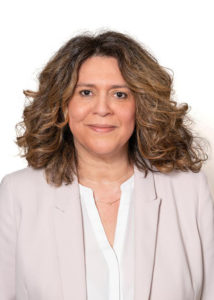
Laila Al-Qatami has extensive experience in management and strategic communications for cultural organizations, non-profit associations, financial institutions, corporations, and governments. Currently, she is the Chief Communications Officer for Al Ahli Bank of Kuwait. Previously, she was the Managing Director for the Sheikh Abdullah Al Salem Cultural Centre (ASCC) in Kuwait, one of the largest cultural complexes in the world. She also directed external relations and corporate social responsibility for Gulf Bank – Kuwait; directed communications and operations for the Executive Office in Diwan of HH The Prime Minister of Kuwait; and headed marketing and outreach for the for the National Center for Documentation and Research of the UAE Ministry of Presidential Affairs. When Laila was based in Washington, DC, she was the spokesperson for the American-Arab Anti-Discrimination Committee (ADC) and a regular commentator for domestic and international media discussing Arabs and Muslims. Laila is a founding board member of Soroptimist Kuwait, a licensed Kuwaiti NGO and chapter of a worldwide service organization for women and girls, most recently serving as its Vice President. She was a member of the National Board of Directors of American Civil Liberties Union (ACLU), the largest civil rights organization in the US (2006-2012) and was a mentor for Georgetown University students in the Patrick Healy Fellows Program (2006-2009). She has a B.S. from the University of Colorado, an M.A. from Georgetown University, and is a certified Sustainability practitioner.
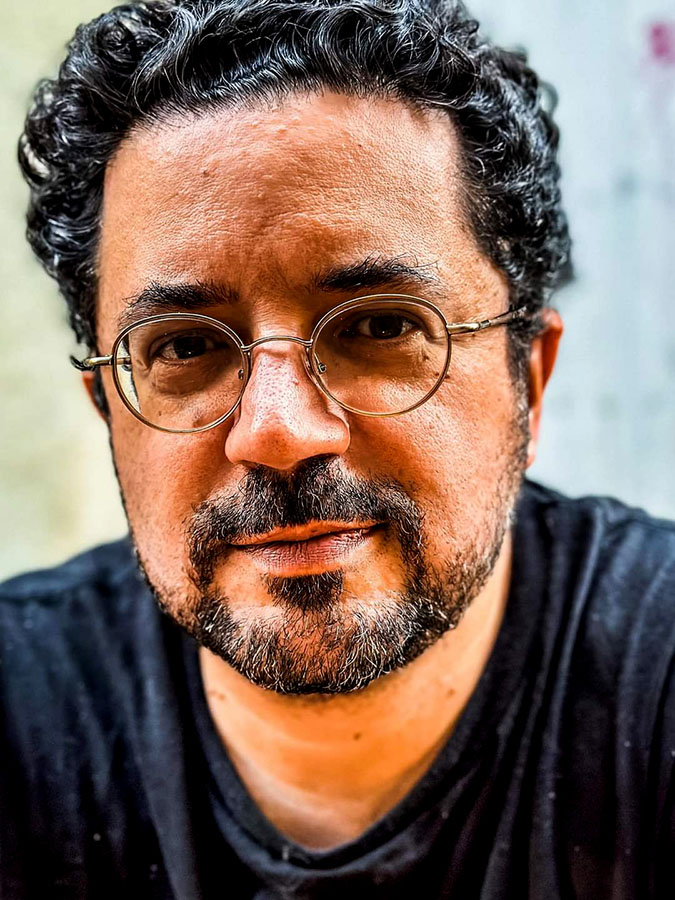
Wanis El Kabbaj is a globally-minded marketing professional with dual French-Moroccan citizenship. Having grown up in a family fond of literature and around books of Amin Maalouf, Taha Hussein, Naguib Mahfouz, he developed a deep appreciation for powerful storytelling. which drove him to deliver two TED Talks on the future of urban transportation and the ambivalent relationship between nationalisms and globalization that garnered 6 million views worldwide. Wanis champions equitable environments, fostering collaboration and driving positive change.
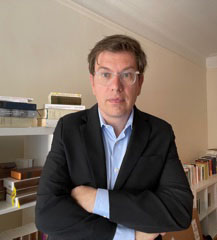
Oliver Gloag was born in New York City and raised in France. As a young activist, he travelled to Nicaragua as part of a solidarity brigade, worked with families of victims of police brutality, campaigned against the expulsion of a Moroccan student (Jussieu Paris VII), and was a member of the committee for the liberation of Abraham Serfaty. As a lawyer in New Orleans, Oliver successfully represented asylum-seekers from Iraq and Congo DR, and was recognized for his work by then Mayor Marc Morial. As an academic, his work is at the intersection of history, literature and politics. His focus is on France’s fraught relationship to its colonial past and neocolonial present. He has written and spoken extensively on Albert Camus and Jean-Paul Sartre. His latest book is Albert Camus, a very short introduction, published by Oxford University Press.
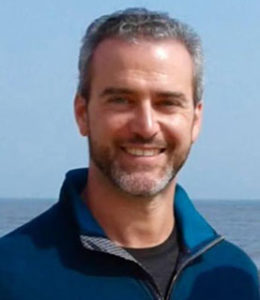
Philip Grant is a Persian-English and French-English translator based in Los Angeles. He has worked as an academic anthropologist and sociologist at the University of Edinburgh and the University of California, Irvine, as well as a non-profit researcher in philosophy of technology, and in investment management. He is co-author of Chains of Finance (OUP, 2017), and is currently working on a history of the Zanj Rebellion. An article on silk cloth in the Zanj Rebellion will be coming out in al-ʿUṣūr al-Wusṭā in December 2022.
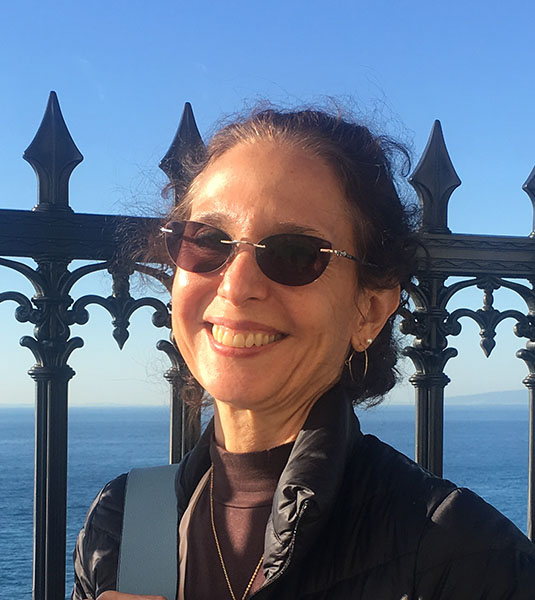
Deborah Kapchan is a writer, translator, ethnographer and a professor of Performance Studies at New York University. A Guggenheim fellow, she is the author of Gender on the Market: Moroccan Women and the Revoicing of Tradition (1996), Traveling Spirit Masters: Moroccan Music and Trance in the Global Marketplace (2007), as well as other works on sound, narrative and poetics. She translated and edited a volume entitled Poetic Justice: An Anthology of Moroccan Contemporary Poetry (2020), which was shortlisted for ALTA’s National Translation Award for Poetry.
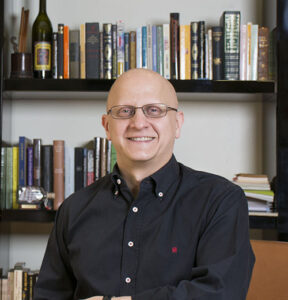
Talal al-Muhanna is a film producer and cultural manager. Through his creative label Linked Productions, he has produced award-winning documentary and fiction films by Arab filmmakers. As Senior Producer at Sheikh Jaber Al-Ahmed Cultural Centre in Kuwait, Talal produced multi-media performances with a wide variety of international artists from 2017-2022. Talal’s films have been supported by Sundance Institute, Tribeca Film Institute and Cinereach (USA); Hot Docs Blue Ice Group Fund (Canada); British Film Institute (UK); Visions Sud Est (Switzerland); Arab Fund for Arts & Culture (Lebanon); and Enjaaz (UAE); these films were selected at numerous festivals and broadcast in Europe, the Americas and MENA. ITVS documentary “Whose Country?” – which he co-wrote – won Best in Journalism at BBC Arabic Film Festival. Talal holds a BA and MA in Film & Moving Image Production from Leeds Beckett University. In 2015, he was a Producing Fellow at the Center for Asian American Media and, in 2020, received British Council Kuwait’s Professional Achievement Award for his work as a media producer.
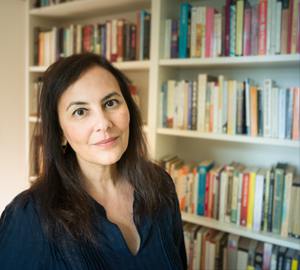
Mai Al-Nakib was born in Kuwait and spent the first six years of her life in London; Edinburgh; and St. Louis, Missouri. She holds a PhD in English literature from Brown University and is Associate Professor of English and comparative literature at Kuwait University. Her academic research focuses on cultural politics in the Middle East, with a special emphasis on gender, cosmopolitanism, and postcolonial issues. Her short story collection, The Hidden Light of Objects, was published by Bloomsbury in 2014. It won the Edinburgh International Book Festival’s First Book Award. Her debut novel, An Unlasting Home—published by Mariner Books in the US and Saqi in the UK—comes out in paperback in April 2023. Her short fiction and essays have appeared in various publications, including Ninth Letter; The First Line; After the Pause; World Literature Today; and the BBC World Service. She lives in Kuwait.
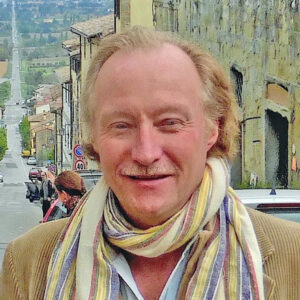
Terence Ward is a writer, producer, and cultural consultant who grew up in Arabia and Iran before attending the American University of Cairo and the University of California at Berkeley. Based in Athens for 10 years, he advised governments and industries across the Gulf with MEIRC. His memoir Searching for Hassan: A Journey to the Heart of Iran was published in seven languages including two Persian editions. His other books are: The Wahhabi Code: How the Saudis Spread Extremism Globally and The Guardian of Mercy: How an Extraordinary Painting by Caravaggio Changed an Ordinary Life. He’s appeared on CNN with Christiane Amanpour, PBS, C-SPAN, BBC, RAI-TV while his writing’s been published by the LA Times, Huffington Post, CNN, The Ecologist, Il Manifesto, La Stampa, and Reset. His award-winning docs include: “Black Africa White Marble,” and “Talk Radio Tehran”. Ward lives in Florence and serves as an ambassador for Religions for Peace, the world’s largest inter-faith organization.
ADVISORY BOARD
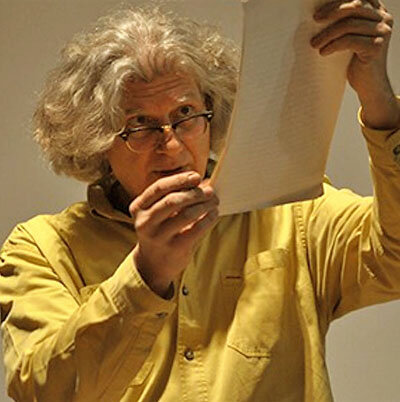
AMMIEL ALCALAY —Poet, novelist, translator, scholar and activist Ammiel Alcalay was born and raised in Boston. He studied Latin and ancient Greek at City College in New York and earned his PhD in comparative literature from the CUNY Graduate Center. His parents were Sephardic Jews from Belgrade (Serbia), and much of Alcalay’s work engages questions of religious identity, language, and culture, particularly the histories and cultures of the Balkans and the Middle East. He is the author of the classic study After Jews and Arabs: Remaking Levantine Culture; Keys to the Garden; Memories of Our Future: Selected Essays and the cairo notebooks [sic] among other works. Alcalay founded and is general editor of Lost & Found: The CUNY Poetics Document Initiative. The chapbook series publishes student and guest-edited archival texts of writers and activists, frequently focusing on correspondence, journals, lectures, and ephemera. Alcalay won the American Book Award for his work on Lost & Found in 2017.
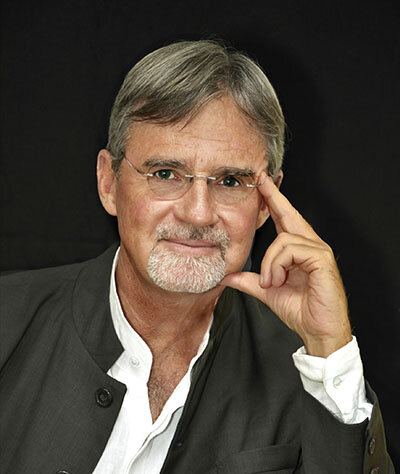 KAI BIRD — is a Pulitzer Prize-winning historian and journalist. In January 2017 he was appointed Executive Director and Distinguished Lecturer of CUNY Graduate Center’s Leon Levy Center for Biography. His most recent book, The Good Spy: The Life and Death of Robert Ames, was a New York Times best-seller. He chronicled his childhood in the Middle East in his memoir, Crossing Mandelbaum Gate: Coming of Age Between the Arabs and Israelis–which was a Finalist for both the National Book Critics Circle Award and the Dayton Literary Peace Prize. He is the acclaimed author of biographies of John J. McCloy, McGeorge Bundy, and William Bundy. He won the Pulitzer Prize for biography in 2006 for American Prometheus: The Triumph and Tragedy of J. Robert Oppenheimer (co-authored with Martin J. Sherwin). His work includes critical writings on the Vietnam War, Hiroshima, nuclear weapons, the Cold War, the Arab-Israeli conflict and the CIA. Bird and Sherwin also won the National Books Critics Circle Award and the Duff Cooper Prize for History. In September 2016 he was awarded an Honorary Doctorate by Carleton College. He is an elected member of the prestigious Society of American Historians. Kai Bird lives in New York City and Florida with his wife Susan Goldmark. His new book, due out in the summer of 2021, is The Outlier: The Unfinished Presidency of Jimmy Carter. @Kaibird123
KAI BIRD — is a Pulitzer Prize-winning historian and journalist. In January 2017 he was appointed Executive Director and Distinguished Lecturer of CUNY Graduate Center’s Leon Levy Center for Biography. His most recent book, The Good Spy: The Life and Death of Robert Ames, was a New York Times best-seller. He chronicled his childhood in the Middle East in his memoir, Crossing Mandelbaum Gate: Coming of Age Between the Arabs and Israelis–which was a Finalist for both the National Book Critics Circle Award and the Dayton Literary Peace Prize. He is the acclaimed author of biographies of John J. McCloy, McGeorge Bundy, and William Bundy. He won the Pulitzer Prize for biography in 2006 for American Prometheus: The Triumph and Tragedy of J. Robert Oppenheimer (co-authored with Martin J. Sherwin). His work includes critical writings on the Vietnam War, Hiroshima, nuclear weapons, the Cold War, the Arab-Israeli conflict and the CIA. Bird and Sherwin also won the National Books Critics Circle Award and the Duff Cooper Prize for History. In September 2016 he was awarded an Honorary Doctorate by Carleton College. He is an elected member of the prestigious Society of American Historians. Kai Bird lives in New York City and Florida with his wife Susan Goldmark. His new book, due out in the summer of 2021, is The Outlier: The Unfinished Presidency of Jimmy Carter. @Kaibird123
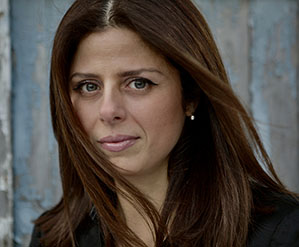
NATHALIE HANDAL was raised in Latin America, France and the Middle East, and educated in the United States, United Kingdom and Asia. Her recent poetry books include Life in A Country Album, winner of the 2020 Palestine Book Award and finalist for the Foreword Book Award; the flash collection The Republics, lauded as “one of the most inventive books by one of today’s most diverse writers,” and winner of the Virginia Faulkner Award for Excellence in Writing, and the Arab American Book Award; the critically acclaimed Poet in Andalucía and The Invisible Star; and Love and Strange Horses, winner of the Gold Medal Independent Publisher Book Award. She is the editor of two anthologies, and her work has appeared in Vanity Fair, Guernica Magazine, The Guardian, The New York Times, The Nation, The Irish Times, among others. Handal is the recipient of awards from the PEN Foundation, the Lannan Foundation, Centro Andaluz de las Letras, Fondazione di Venezia, The Africa Institute, among others. She is professor of literature and creative writing at New York University, and writes the literary travel column ‘The City and the Writer’ for Words without Borders magazine.
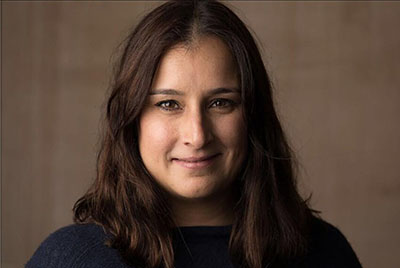
RANA KAZKAZ is an award-winning filmmaker. With a focus on Syrian stories, her portfolio includes Mare Nostrum (2016) which has been selected in over 100 international film festivals and won more than 30 awards, the documentary Searching for the Translator (2016), Ham (2013), Deaf Day (2011), Exquisite Corpse (2009) and Kemo Sabe (2007). Her first feature The Translator (2021) won several grants and development awards including the Arte Award at L’Atelier de la Cinefondation at the Cannes Film Festival (2017), the CNC Award at Meetings on the Bridge at the Istanbul Film Festival (2017) and a Tribeca Alumni Grant (2018). Her current film projects include Honest Politics and The Foolishness of God: My Forgiveness Journey with Desmond Tutu. She is an assistant professor of communication in residence at Northwestern Qatar who teaches narrative filmmaking.
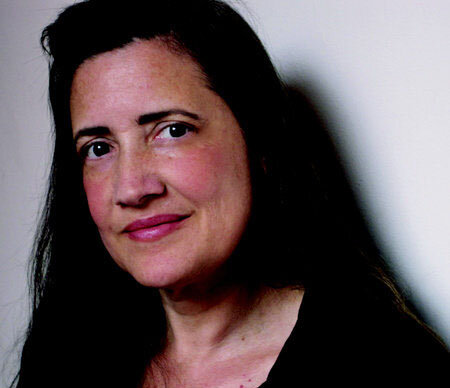
ANNE-MARIE O’CONNOR — is the author of The Lady in Gold: The Extraordinary Tale of Gustav Klimt’s Masterpiece, Portrait of Adele Bloch-Bauer, the bestselling story of the battle by Vienna emigre Maria Altmann to reclaim five Gustav Klimt paintings from her native Austria in an eight-year legal battle, a saga that also inspired the movie Woman in Gold, in which Helen Mirren played Maria Altmann. A former Jerusalem correspondent, Anne-Marie is a longtime journalist in Latin America, and covered the civil wars in Nicaragua and El Salvador as a Central America bureau chief for Reuters. She was also a staff writer for the Los Angeles Times, the Miami Herald, UPI, and the Cox Newspaper chain, and has written for Esquire, the Christian Science Monitor, and The Nation. She is a speaker on the subject of the Nazi plunder of art and restitution. Her twitter handle is @theladyingold.
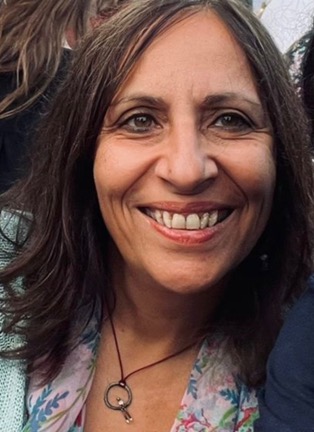
VIOLA SHAFIK — is a filmmaker, curator and film scholar. She is the author of Arab Cinema: History and Cultural Identity (AUC Press 1998/2016), Popular Egyptian Cinema: Gender, Class and Nation (AUC Press 2007), Resistance, Dissidence, Revolution:
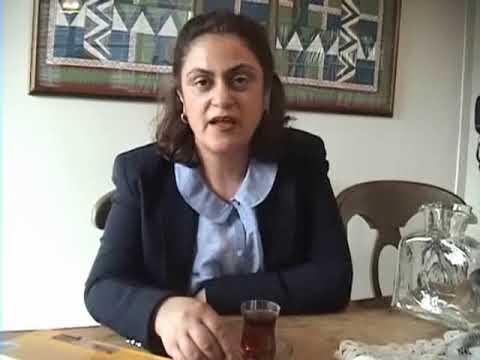 ELLA SHOHAT—is Professor of Cultural Studies at NYU. Her books include Taboo Memories, Diasporic Voices; Israeli Cinema: East/West and the Politics of Representation; Talking Visions: Multicultural Feminism in a Transnational Age; Dangerous Liaisons: Gender, Nation and Postcolonial Perspectives; Between the Middle East and the Americas: The Cultural Politics of Diaspora; and with Robert Stam, Unthinking Eurocentrism; Multiculturalism, Postcoloniality and Transnational Media; Flagging Patriotism: Crises of Narcissism and Anti-Americanism; and Race in Translation: Culture Wars Around the Postcolonial Atlantic. She co-edited a number of special issues for the journal Social Text, including “Edward Said: A Memorial Issue,” “Palestine in a Transnational Context,” and “911-A Public Emergency?” while her writing has been translated into over 10 languages. Shohat has also served on the editorial board of several journals, including: Social Text; Middle East Critique; Meridians; Interventions; and Middle East Journal of Culture and Communication. She is a recipient of such fellowships as Rockefeller and the Society for the Humanities at Cornell University, where she also taught at The School of Criticism and Theory; together with Sinan Antoon, she was awarded the NYU Humanities Initiative fellowship for their “Narrating Iraq: Between Nation and Diaspora;” and Shohat was awarded a Fulbright research / lectureship at the University of São Paulo, Brazil, for studying the cultural intersections between the Middle East and Latin America. She is author most recently of On the Arab-Jew, Palestine and Other Displacements & Between the Middle East and the Americas: The Cultural Politics of Diaspora. Ella Shohat is from a Jewish-Baghdadi family, grew up in Israel and has lived most of her life in New York.
ELLA SHOHAT—is Professor of Cultural Studies at NYU. Her books include Taboo Memories, Diasporic Voices; Israeli Cinema: East/West and the Politics of Representation; Talking Visions: Multicultural Feminism in a Transnational Age; Dangerous Liaisons: Gender, Nation and Postcolonial Perspectives; Between the Middle East and the Americas: The Cultural Politics of Diaspora; and with Robert Stam, Unthinking Eurocentrism; Multiculturalism, Postcoloniality and Transnational Media; Flagging Patriotism: Crises of Narcissism and Anti-Americanism; and Race in Translation: Culture Wars Around the Postcolonial Atlantic. She co-edited a number of special issues for the journal Social Text, including “Edward Said: A Memorial Issue,” “Palestine in a Transnational Context,” and “911-A Public Emergency?” while her writing has been translated into over 10 languages. Shohat has also served on the editorial board of several journals, including: Social Text; Middle East Critique; Meridians; Interventions; and Middle East Journal of Culture and Communication. She is a recipient of such fellowships as Rockefeller and the Society for the Humanities at Cornell University, where she also taught at The School of Criticism and Theory; together with Sinan Antoon, she was awarded the NYU Humanities Initiative fellowship for their “Narrating Iraq: Between Nation and Diaspora;” and Shohat was awarded a Fulbright research / lectureship at the University of São Paulo, Brazil, for studying the cultural intersections between the Middle East and Latin America. She is author most recently of On the Arab-Jew, Palestine and Other Displacements & Between the Middle East and the Americas: The Cultural Politics of Diaspora. Ella Shohat is from a Jewish-Baghdadi family, grew up in Israel and has lived most of her life in New York.
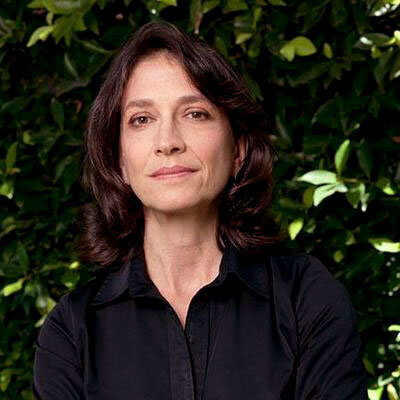
AMY WILENTZ—Amy Wilentz is the author of Farewell Fred Voodoo: A Letter From Haiti, The Rainy Season: Haiti Since Duvalier, the novel Martyrs’ Crossing, and I Feel Earthquakes More Often Than They Happen: Coming to California in the Age of Schwarzenegger. She is the winner of the Whiting Writers Award, the PEN Martha Albrand Non-Fiction Award, and the American Academy of Arts and Letters Rosenthal Award. In 1990 she was shortlisted for the National Book Critics Circle Award for nonfiction for The Rainy Season. She won the 2013 National Book Critics Circle Award for memoir for Farewell, Fred Voodoo, and was awarded a Guggenheim Fellowship in general nonfiction in 2020. Wilentz is MacDowell fellow, the former Jerusalem correspondent for The New Yorker and a long-time contributing editor at The Nation. She has written for The New York Times, The Washington Post, The Los Angeles Times, Politico, The London Review of Books, the Los Angeles Review of Books, and many other publications. She teaches in the Literary Journalism program at the University of California at Irvine, and lives in Los Angeles. She tweets @amywilentz.
EMERITI
DR MEHNAZ M. AFRIDI
Professor Mehnaz M. Afridi is the Director of the Holocaust, Genocide and Interfaith Education Center at Manhattan College in the Bronx, where she teaches contemporary Islam and the Holocaust. The author of the 2017 title Shoah Through Muslim Eyes, she taught Judaism and Islam at Antioch University, Los Angeles. Originally from Pakistan, raised in Europe and the Middle East, she brings a multicultural perspective to Islam. Her deep interest in Judaism and Modern Jewish Diaspora has led her to numerous interfaith conferences, invitations by non-Muslims to expound on the intellectual and theological similarities between Jews and Muslims. Her recent research projects are focused in Italy, Muslims and Jews in Italian culture; she taught in Rome and received a grant from the National Endowment of Humanities to attend a seminar in Venice, Italy. Read an article about Mehnaz’s “Ask a Muslim” lecture series. Mehnaz once presented her talk, An Illuminated History of Jewish-Muslim Relations at Levantine Cultural Center.
DR REZA ASLAN
Dr. Reza Aslan, an internationally acclaimed writer and scholar of religions, is a contributing editor at the Daily Beast. Reza Aslan has degrees in Religions from Santa Clara University, Harvard University, and the University of California, Santa Barbara, as well as a Master of Fine Arts from the University of Iowa, where he was named the Truman Capote Fellow in Fiction. He is a member of the Council on Foreign Relations, the Los Angeles Institute for the Humanities, and the Pacific Council on International Policy. He serves on the board of directors for both the Ploughshares Fund, which gives grants for peace and security issues, Abraham’s Vision, an interfaith peace organization, and PEN USA, as well as The Markaz/Levantine Cultural Center’s national advisory board.
Aslan’s first book is the New York Times bestseller, No god but God: The Origins, Evolution, and Future of Islam, which has been translated into thirteen languages, short-listed for the Guardian First Book Award in the UK, and nominated for a PEN USA award for research Non-Fiction. His most recent book is How to Win a Cosmic War: God, Globalization, and the End of the War on Terror, followed by an edited anthology, Words Without Borders: Writings from the Middle East, which will be published by Norton in 2010.He has written for the Los Angeles Times, the New York Times, Slate, Boston Globe, the Washington Post, the Nation, and others, and has appeared on Meet The Press, Hardball, The Daily Show, The Tavis Smiley Show, Real Time with Bill Maher, The Colbert Report, and Nightline.
Aslan is Cofounder and Chief Creative Officer of BoomGen Studios, the first ever motion picture company focused entirely on entertainment about the Greater Middle East and its Diaspora communities, as well as Editorial Executive of Mecca.com. Born in Iran, he now Reza Aslan has been a frequent guest on the Daily Show and many other cable news stations. His many books and edited anthologies are important contributions to the dialogue about Islam and the West, and US – Iran relations. He is now the Wallerstein Professor at Drew University’s Center on Religion, Culture, and Conflict in New Jersey.
DR SAMI SHALOM CHETRIT
Sami Shalom Chetrit is a dissident Israeli poet, educator, filmmaker and historian whose latest book The Mizrahi Struggle in Israel: 1948-2003, has been translated into Arabic by Samir Ayash and published by Madar (Ramallah). Chetrit received his Ph.D in 2001 from The Hebrew University of Jerusalem, Department of Political Science, writing on Mizrahi politics in Israel. He received a Master of International Affairs in 1991 from Columbia University, with a specialization in Middle Eastern studies. He was born in 1960 in Morocco and grew up in an immigrant working class neighborhood in the port city of Ashdod. His published poetry includes Poems in Ashdodians, poems from 1982-2002 (Andalus, 2003). Several of his poems appear in English translation in the anthology Keys to the Garden (City Lights 1999), edited by Ammiel Alcalay. In 2003 he co-produced and directed with Eli Hamo (cinematography and editing) the documentary film “The Black Panthers (in Israel) Speak.” His new documentary is “Come Mother” on his mother’s generation of Moroccan women in Israel.
PETER COLE
Peter Cole is the winner of a 2007 MacArthur Award. He is a translator, publisher, and poet who brings the often overlooked works of medieval Spain and the modern Middle East to English-speaking audiences. His highly regarded translations of the poetry of Solomon Ibn Gabirol and Shmuel HaNagid, two of the great Hebrew poets of the Andalusian “Golden Age,” offer readers a lyrical illustration of the extraordinary Arab-Jewish cultural partnership that flourished in tenth- through twelfth-century Spain.
A poet himself, Cole’s translations infuse medieval verse with contemporary meaning while remaining faithful to the original text. His renderings of HaNagid’s poems in particular, long regarded as “untranslatable,” retain the subtleties, complexities, and formal elegance of the original verse. Underlying Cole’s translations is an implicit message of cultural and historical cross-fertilization that is also evident in his work as a poet and a publisher. His Ibis Editions publishes little-known works translated from Arabic, Hebrew, German, French, and Ladino, enlightening English-speaking audiences to the thriving literary tradition of the Levant. By fostering literary dialogue in and about the Middle East, Ibis provides an occasion for intellectual and cultural collaboration. In a region mired in conflict, Cole’s dedication to the literature of the Levant offers a unique and inspiring vision of the cultural, religious, and linguistic interactions that were and are possible among the peoples of the Middle East.
Peter Cole began his undergraduate studies at Williams College (1975-1977) and received a B.A. (1980) from Hampshire College in Amherst, Massachusetts. He is the author of two volumes of poetry, Rift (1989) and Hymns & Qualms (1998), and has also published many volumes of translation from Hebrew and Arabic, including Selected Poems of Shmuel HaNagid (1996), Selected Poems of Solomon Ibn Gabirol (2001), Taha Muhammad Ali’s So What: New and Selected Poems, 1971-2005 (2006), and The Dream of the Poem: Hebrew Poetry from Muslim and Christian Spain, 950-1492 (2007). He is the co-editor of Ibis Editions, which he co-founded in 1998, and has been a visiting writer and professor at Wesleyan University, Middlebury College, and Yale University’s Whitney Center for the Humanities in the fall of 2006.
Among Cole’s translations from contemporary Hebrew and Arabic poetry and fiction are also Love & Selected Poems of Aharon Shabtai (Sheep Meadow), J’Accuse, by Aharon Shabtai (New Directions), So What: New & Selected Poems, 1971-2005 by Taha Muhammad Ali (Copper Canyon Press), The Collected Poems of Avraham Ben Yitzhak (Ibis) and The Shunra and the Schemetterling, by Yoel Hoffmann (New Directions).
Cole has received numerous awards for his work, including fellowships from the John Simon Guggenheim Foundation, the National Endowment for the Arts, the National Endowment for the Humanities, and the 1998 Modern Language Association Translation Award. J’Accuse received the 2004 PEN-America Award for Poetry in Translation.
DORIT CYPIS
Dorit Cypis is an award winning artist, educator and mediator. Her work has been presented internationally at museums and other cultural contexts. Foreign Exchanges, an initiative since 2007, offers conflict engagement and diversity skills through mediation and aesthetics. Dorit is Founding Member, Mediators Beyond Borders and past Chair/MBB Middle East Initiative; she founded Kulture Klub Collaborative, artists working with homeless youth to bridge survival and inspiration; directed FAR, Foundation for Art Resources, partnering with private and public organizations to support cultural production in urban settings by artists. On Policing, a current project, weaves her strengths to design community development events in vulnerable neighborhoods where local youth and police officers engage through collaborative and interdependent efforts. Dorit was awarded a Guggenheim Fellowship and a Rauschenberg Foundation Residency in 2014 and has taught throughout USA, Canada, Israel, Holland and France. She earned a Masters of Fine Art, California Institute for the Arts, and Masters of Dispute Resolution, Pepperdine University.
DR NILE REGINA EL WARDANI
Nile Regina El Wardani, MPH, MPhil, Ph.D. currently lectures at CSUSM.edu, UCSD.edu and SDSU.edu in Global Public Health. Previously she taught at the American University in Cairo, Egypt in the Graduate School of Global Affairs and Public Policy. A multi-cultural person, Nile speaks English, French, Arabic and Spanish. She holds a PhD and MPhil from the University of London in Public Policy and a Master in Public Health from UCLA.
She has worked for over 25 years in Africa, the Middle East and USA as a program manager/business developer in the fields of public health and international development. She specializes in public health education, human rights, reproductive health and women’s empowerment. She was awarded the Middle East Award for Social Science Research for her research on policy, governance, human rights, and civil society. Nile has consulted for UNESCO, UNICEF, WHO, and the Egyptian Ministries of Health, Education and Information. She has worked with bilateral donors including USAID, Finnida, Danida and Dutch Aid and many NGOS in the ME and Africa.
In the cultural realm, Nile has produced for the Metropolitan Opera, Santa Fe Music Festival, Los Angeles Chamber Orchestra, and Carnegie Hall as well as venues in Paris and Cairo. Dedicated to improving lives and bridging gaps between people, Nile produced the world’s first pediatric AIDS benefit at Carnegie Hall in 1989 that was televised on NBC. A visionary, Nile subsequently developed the indigenous Egyptian production of Sesame Street (Alam Simsim) with a focus on nutrition, safety and hygiene.
In media, she co-hosted/produced Radio Intifada (for five years) a weekly one-hour radio show covering the politics and culture of the Middle East and North Africa (MENA) on Pacifica Radio 90.7 FM (Los Angeles). She currently serves on the UCLA School of Public Health Alumni Board of Directors and the Advisory Board of Levantine Cultural Center which champions a greater understanding of the Middle East/North Africa (MENA) region by presenting cultural and educational programs that bridge political and religious divides. She continues to cover culture, travel and design for Obelisque Magazine (Cairo, Egypt) and blogs at www.nileelwardani.org.
BANA HILAL
Bana Hilal was born and raised in Beirut, where she received her B.A. from the American University of Beirut. She also has an Interior Designer Degree from the Newport Beach Interior Designer Institute, and has worked in real estate property management. Bana is a community activist who has long committed herself to humanitarian issues that involve empowering women and assisting underprivileged children, as well building bridge of understanding between diverse communities. She is Co- President of AAUW (American Association of University Women), Laguna Beach Branch—an international women’s organization that advocates equity for women. She is active with the American University of Beirut, and the Daniel Bliss Society Leadership Committee, and is past president of the Lebanese Ladies Cultural Society, an organization that teaches underprivileged students in Lebanon. She is also President and Founder of WIN, Women’s Intellectual Network in Orange County, a group that dedicates itself to building a strong community of women. She is a past board member of Contacts of Orange County, professional women’s group, past board member of Art Matrix, an organization that encourages art as means of expression for Students, and has been a member of several organizations that provide support for the community. She has been a member of Levantine Cultural Center’s national advisory board since 2007. In December 2010 she received the East-West Bridgebuilder Award, along with Jodie Evans and Roxana Saberi.
ELIE KARAM
Elie Karam is an award-winning playwright, director and actor. Born in Beirut, he fled the Lebanese civil war to Vienna and Montreal to study Dramatic Arts. Relocating to post-war Beirut, he has written and directed critically acclaimed plays exposing important issues in the Middle East. His eclecticism has led him to write for French literary magazines, teach workshops at the University of Toronto, work in advertising for Grey Worldwide as well as exhibit art work in museums and create a hit Arab TV show. He’s been invited as a resident author at the Royal Court Theatre in London and his plays have been performed at the Theatre du Rond-Point in Paris and La Mama in New York. His new play “Tell Me About the War So I’ll Love You” received the prestigious Beaumarchais literary grant, the Lyon Author award and has been published in France by Actes-Sud. It was produced at the world-renowned Avignon Theater Festival in 2010. Elie Karam divides his time between Beirut, Paris and Los Angeles. He served as the artistic consultant for Levantine Cultural Center programs based on his many years’ experience in theatre, television and public events.
ELIAS KHOURY
Elias Khoury is currently the Global Distinguished Professor of Middle Eastern and Islamic Studies at New York University. Born in Beirut in 1948, He is the author of eleven novels, four volumes of literary criticism, and three plays. Since 1975, with the publication of his first novel, he has been in the Beirut vanguard of new Arabic literature, which was seeking to create new dimensions in the movement of modernism.
Khoury’s commitment to Palestinian human rights began when he visited a refugee camp in Jordan at age nineteen. Khoury has been an advocate ever since, devoting his energies to the Palestine Research Center in Beirut and speaking out in articles, essays, and through his fiction. Khoury is the editor in chief of the cultural supplement of Beirut’s daily newspaper, An-Nahar. In 1998, he was awarded the Palestine Prize for Gate of the Sun, and in 2000, the novel was named Le Monde Diplomatique’s Book of the Year. Elias Khoury is a public intellectual and a cultural activist who plays a major role in contemporary Arabic culture and in the defense of the liberty of expression and democracy. Khoury’s latest novel to be translated into English is Yalo.
“In Humphrey Davies’s sparely poetic translation, Gate of the Sun is an imposingly rich and realistic novel, a genuine masterwork.” —
Lorraine Adams, New York Times
Listen to an interview with Elias Khoury.
DR MARK LEVINE
Mark LeVine a scholar, musician and activist with well over a decade of experience living and working in the Middle East, from Morocco to Iraq. As an guitarist and ‘oudist he has worked with Mick Jagger, Ozomatli, world music artist Hassan Hakmoun and blues and jazz greats Dr. John and Johnny Copeland. As an activist he has worked with various groups within the global peace and justice movement and spoken at some of its seminal gatherings, such as the Prague S26 Countersummit against the IMF in 2000. As a journalist he has written widely in the US and European press, including Le Monde, the Christian Science Monitor, Middle East Report, and Asia Times. As a scholar he has held positions at the International Center for Advanced Studies at New York University, the Society for Humanities at Cornell University, and the Robert Schuman Centre for Advanced Studies at the European University Institute in Florence, Italy. LeVine is presently Associate Professor of Modern Middle Eastern History, Culture and Islamic Studies at the University of California, Irvine. His other books include Twilight of Empire: Responses to Occupation (co-editor, Perceval Press, 2003), Overthrowing Geography: Jaffa, Tel Aviv and the Struggle for Palestine(University of California Press, 2004) and Religion, Social Practice, and Contested Hegemonies: Reconstructing Muslim Public Spheres, (co-editor, Palgrave Press, 2005).Two of his most recent books are Why They Don’t Hate Us, Unveiling the Axis of Evil (One World 2005) and Heavy Metal Islam, Rock, Resistance, and the Struggle for the Soul of Islam, Random House (July 2008). Read an interview with LeVine.
JULIANA MAIO
Born in Egypt, raised in France and formally educated in the United States, Juliana Maio is an entertainment attorney, writer, and co-founder with her husband, producer, Michael Phillips, of Lighthouse Productions, a film and television company based in Los Angeles
Juliana has recently completed her first novel, Cairo, a work of historical fiction that takes place in the fall of 1941, when Egypt, under British “protection”, looked likely to be next to fall to the Axis powers. Had that happened, the entire outcome of the war could have changed
The story follows an American journalist who is searching for a refugee scientist believed to be hiding within Cairo’s large Jewish community. Juliana’s lifelong interest in her own roots and in the history of Jewish-Arab relations inspired her to write this novel, which is now being developed as a motion picture film.
DR SAREE MAKDISI
Lebanese-Palestinian-American scholar and writer Saree Makdisi has already carved a niche for himself in academic and intellectual circles. He is the author of Romantic Imperialism: Universal Empire and the Culture of Modernity and William Blake and the Impossible History of the 1790s. Also a prolific writer on political affairs, in 2008 he published his third book,Palestine Inside Out: An Everyday Occupation (Norton). He has written in publications ranging from Studies in Romanticism, the Oxford Encyclopedia of British Literature, Race and Imperial Culture, and the Cambridge Companion to English Literature, 1740-1830, to the South Atlantic Quarterly, Boundary 2, Critical Inquiry, and the London Review of Books. On a recent visit to Cairo, Makdisi gave three lectures at Ain Shams University and the American University in Cairo on “The revival of Orientalism”, “William Blake” and the “Palestinian Nakba.”
TERRENCE MCNALLY
Terrence McNally is a radio host (KPFK 90.7fm in LA, WBAI 99.5fm in NY), featured journalist at Alternet.org, and a popular speaker, consultant and coach, specializing in message, story, and narrative for nonprofits and social entrepreneurs. A few years out of Harvard, Terrence left Boston and teaching for Los Angeles and the entertainment industry. He wanted to reach larger audiences. After twenty years as an actor, director, screenwriter (Earth Girls Are Easy—starring Geena Davis, Jeff Goldblum and Jim Carrey), songwriter and record producer (classic novelty songs and Julie Brown’s Goddess in Progress, #4 EP in the Village Voice 1985 Critics Poll), he realized he wasn’t fulfilling his vision. Now it all comes together in his media and consulting work, as he seeks, spreads, and encourages stories of a world that just might work.
On Free Forum—his weekly radio show in Los Angeles (KPFK 90.7fm) and New York (WBAI 99.5fm)—McNally engages the most visionary thinkers, writers, and doers he can find to make sense of the current moment and shed light on the path ahead.
One week Michael Lewis explains the Wall Street crash, the next Father Greg Boyle and one of the thousands of gang members he’s hired at LA’s Homeboy Industries, offer hope. Other recent guests include Atul Gawande MD of The New Yorker, Temple Grandin, Nicholas Kristof of The New York Times, outspoken Afghanistan Parliament member Malalai Joya, Cornel West, Craig Venter, and Robert Wright. Guests are invited to express their authentic selves, share their passion as well as their ideas, and explore new territory. Finally, Terrence makes sure complex and important ideas make sense to listeners. All based on the fact that he believes we can do better, and wants to find out how. McNally is also a recurring host on KCRW’s syndicated NPR shows, To the Point and Left, Right, and Center. Interviews appear in print at AlterNet.org/.
As a speaker, writer, consultant, and coach, Terrence helps foundations, non-profits, public agencies, and progressive corporations tell their best stories. He speaks and offers workshops on how to tap the unique power of narrative—not only to engage audiences, both inside and outside your organization, but also to better define for yourself who you are. He works with individuals and organizations to more effectively deliver their messages in person or in writing, live or through the media.
VERA MIJOJLIC
Vera Mijojlic has been a journalist and cultural reporter as a well as an activist on behalf of human rights and refugees. Hailing from ex-Yugoslavia, her career path reflects her diverse interests in cinema, history, cultural heritage and the politics of culture of the Balkans and Eastern Europe. In Los Angeles since 1992, she founded the first-ever festival of films from South East Europe, the Southeast European Film Festival. Prior to 1992 Vera worked for major international motion picture companies filming in ex-Yugoslavia, including location filming for the historic ’84 Winter Olympic Games in Sarajevo. She also served as director of marketing and PR for the Avala Film Studios in Belgrade, and wrote extensively about films and cultural events for numerous daily papers, magazines, and cultural reviews. Vera is a frequent public speaker at trade and community events, and guest lecturer at universities. She takes pride in her community service, and has a distinguished record in humanitarian work.
AMITIS MOTEVALLI
Amitis Motevalli was born in Tehran, Iran, and moved to the US in 1977; in 1995 she received a BA from SFSU in Art with a minor in Women’s studies, and in 1998 an MFA from Claremont Graduate University. Her work as an artist incorporates a combination of near-eastern aesthetic with a western art education. Motevalli states, “Being an immigrant in the US shows in my work cultural plurality, natural and learned. In all of my work, I create a dialogue that presents alternatives to dominant canons in research and reflection of the present as well as history.”
Amitis Motevalli is a recent recipient of the Center for Cultural Innovation Artistic Innovation Award, the Danish Arts Council International Resident Artist Award, the California Community Foundation Fellowship and the Visions of California Award, a James Irvine Foundation Fellowship and the NEA/Warhol Foundation artist fellow. Motevalli is also the director of The William Grant Still Arts Center. She currently lives and works in Los Angeles, exhibiting art internationally as well as organizing to create an active and resistant cultural discourse through information exchange, either in art, pedagogy or organizing artist and educators. Visit her site.
HEATHER RAFFO
Heather Raffo is the recipient of a Susan Smith Blackburn Prize Special Commendation and the Marian Seldes-Garson Kanin Fellowship for “Nine Parts of Desire”. Most recently she has received a 2005 Lucille Lortel award for Best Solo show as well as an Outer Critics Circle Nomination and a Drama League nomination for Outstanding Performance.
Raffo’s other recent acting credits include: Sarah Woodruff in the world premiere of The French Lieutenant’s Woman, Fulton Opera House. Off-Broadway: Over The River and Through the Woods, the Off Broadway/National Tour of Macbeth (Lady Macbeth), The Merry Wives of Windsor (Mistress Page) and The Rivals all with The Acting Company. Regionally: Othello (dir. Jack O’Brien), Romeo and Juliet (dir. Daniel Sullivan), As You Like It (dir. Stephen Wadsworth), Macbeth (dir. Nicholas Martin), and Comedy of Errors (dir. John Rando) all with The Old Globe Theatre in San Diego.
Raffo received her BA from the University of Michigan, her MFA from the University of San Diego and studied at the Royal Academy of Dramatic Art, London. Originally from Michigan, she now divides her time betwee New York and Los Angeles. Her father is from Iraq and her mother is American. She dedicates “Nine Parts of Desire” to the many members of her family still living in Baghdad today and to the Iraqi women she has interviewed. Visit her web site.
DR DIANE SHAMMAS
Diane Shammas received her PhD in international and intercultural education from the University of Southern California. Her regional focus is on MENA while her research centers around ethno-religious and transnational identity, interethnic and interfaith relations, Arab Americans and Muslim Americans post-9/11 and the diaspora in US and Europe, indigeneity, settler colonialism, and comparative analysis of African American and Palestinian liberatory struggles.
JANET STERNBURG
Janet Sternburg is a poet and essayist, best known in the literary world for editing the classic two-volume set, The Writer on Her Work, long recognized as a groundbreaking work on women and writing. Norton issued a special anniversary edition in 2000 with a new introduction by Julia Alvarez. The Writer on Her Work has been named one of the 500 Great Books by Women: Thirteenth Century to the Present, and has been recognized by the Literary Guild, Writers Digest Book Club, Quality Book Club and the Common Reader.
Sternburg has also had a career in film and theater. She produced and directed award-winning films for public television, among them Virginia Woolf: The Moment Whole, featuring Marian Seldes, on being a woman and a writer. She created, curated, and wrote the thirteen-part series, Through Her Eyes, the first nationally televised series of independent films by women. In addition, Sternburg served as the Senior Program Officer in Media for the Rockefeller Foundation, where she directed an international fellowship program. For seven years she served as director of the Writers in Performance Series at the Manhattan Theatre Club, where she pioneered new ways to present literature on stage. Those events included Stockard Channing in Colette and Zoe Caldwell in Isak Dinesen.
Also an accomplished photographer, Sternburg’s photography has been exhibited nationally and internationally, purchased by major collectors, and is in the permanent collection of the museum of the University of Southern California. In 2002, a six-page portfolio of her work appeared in the distinguished international photography magazine Aperture, along with a solo show at the James Francis Trezza gallery in New York City. Art Journal also published an eight-page portfolio of her work.
Sternburg currently is a member of the faculty of critical studies at the California Institute of the Arts, where she teaches in the writing program. She has received many awards and fellowships including the Albert Camus Award in French Literature from the New School, the Dale Djerassi Fellow at the Djerassi Artist Residence Program, and fellow of the MacDowell Colony, the Millay Colony and the Blue Mountain Artist Retreat, as well as multiple National Endowment for the Humanities grants. She currently serves on the board of directors of PEN Center West, where she has served as vice president and chair of the Literary Awards.
ROWAN STORM
With more than 30 years’ experience with cultures and drumming of the Middle East and Mediterranean, Rowan Storm is recognized internationally as a performer, educator and frame drum designer. Rowan is pioneering the symmetrical frame drum playing position with her most recent design, Remo’s Thinline Frame Drum. The narrow frame and light weight enable both hands to engage equally in creative rhythmic expression, promoting balance between both brain hemispheres. Rowan’s first signature drum is an updated version of the archetypal women’s frame drum of Iran, the Rowan Storm Dayereh by Cooperman and by Remo.
Based in Athens, Greece for many years, Rowan has collaborated with some of the greatest masters of Middle Eastern music, including Naser Musa, Soheil Kaspar, Souren Baronian, Ross Daly, Omar Faruk Tekbilek, Sahba Motallebi and Mohammad Reza Lotfi. Rowan teaches frame drum workshops and performs in prestigious venues throughout the US, Europe and the Middle East, including Istanbul’s Cemal Reşit Rey Concert Hall, Ankara’s Middle East Technical University, Greece’s Epidavros Ancient Amphitheater, European Music Conservatories, New York’s Lincoln Center, San Francisco’s Asian Art Museum, Craft and Folk Art Museum of Los Angeles and the Los Angeles County Museum of Art (LACMA).Visit her site.
SUSANNA WHITMORE FRÁNEK
Susanna Whitmore Fránek is a native of Los Angeles and a descendent of one of L.A.’s Hispanic founding families whose roots go back to California’s pre-mission days. She spent many years abroad, living and traveling extensively in both Mexico and Spain. An ongoing interest in Arabic music and culture led her to teach and perform Middle Eastern dance during her seven years in Spain, while she also pursued studies in Flamenco and North Africa dance forms. More recently she has made a point of attending the Middle East Music and Dance Camp in Mendocino each year.
Upon her return to L.A. in the 80s, Susanna went to work for La Opinión, L.A.’s Spanish-language daily newspaper, where she expanded the portfolio of advertisers, served as a cultural liaison between corporate America and the Hispanic community, collaborated on various sales-related projects with the Los Angeles Times. Susanna also worked as VP of Sales at the Wave Community Newspapers, a group of weekly publications targeting Southern California’s African American and Hispanic communities.
Currently Susanna is a co-founder/part owner of a multicultural market research boutique as Principal and SVP of Business Development where she has developed key relationships within major corporations and multicultural advertising agencies, selling Hispanic, Asian and African American consumer-related qualitative and quantitative research and consulting. She has also spearheaded documentary-style film production, complimenting studies on Hispanic urban youth, barbershop discussions with African American men, identity making among Hmong students, an exposé on L.A.’s Asian Indian community, and the growth of store-front Evangelical churches catering to Hispanic immigrants.
Susanna graduated from UC Santa Barbara with a BA in Interdisciplinary Studies combining Spanish Literature, History and Anthropology. She is currently working on a Master’s Degree in Cultural Anthropology at California State University, Los Angeles. Her thesis topic is on the cultural movement evolving within the Middle Eastern music scene in Los Angeles, and the musicians that are using musical performance and collaboration to encourage intercultural exchange and understanding to promote a dialogue of co-existence and peace. Her goal is to make a documentary film to narrate this growing movement.
JOYCE ZONANA
Joyce Zonana, born in Cairo and raised in New York City, earned her Ph.D. in English at the University of Pennsylvania. Before coming to BMCC (Borough of Manhattan Community College) in 2006, she taught for 15 years at the University of New Orleans, where she was also Director of Women’s Studies. Several chapters from her new memoir, Dream Homes: From Cairo to Katrina, an Exile’s Journey (Feminist Press 2008), have appeared in journals and books, including Meridians, International Sephardic Journal, Jewish Women’s Literary Annual, and Becoming American: Personal Essays by First Generation Immigrant Women. Her scholarly articles, on feminist theory and 19th century British literature, have appeared in Hudson Review, Signs, Victorian Poetry, Tulsa Studies in Women’s Literature, and Journal of Narrative Technique.
